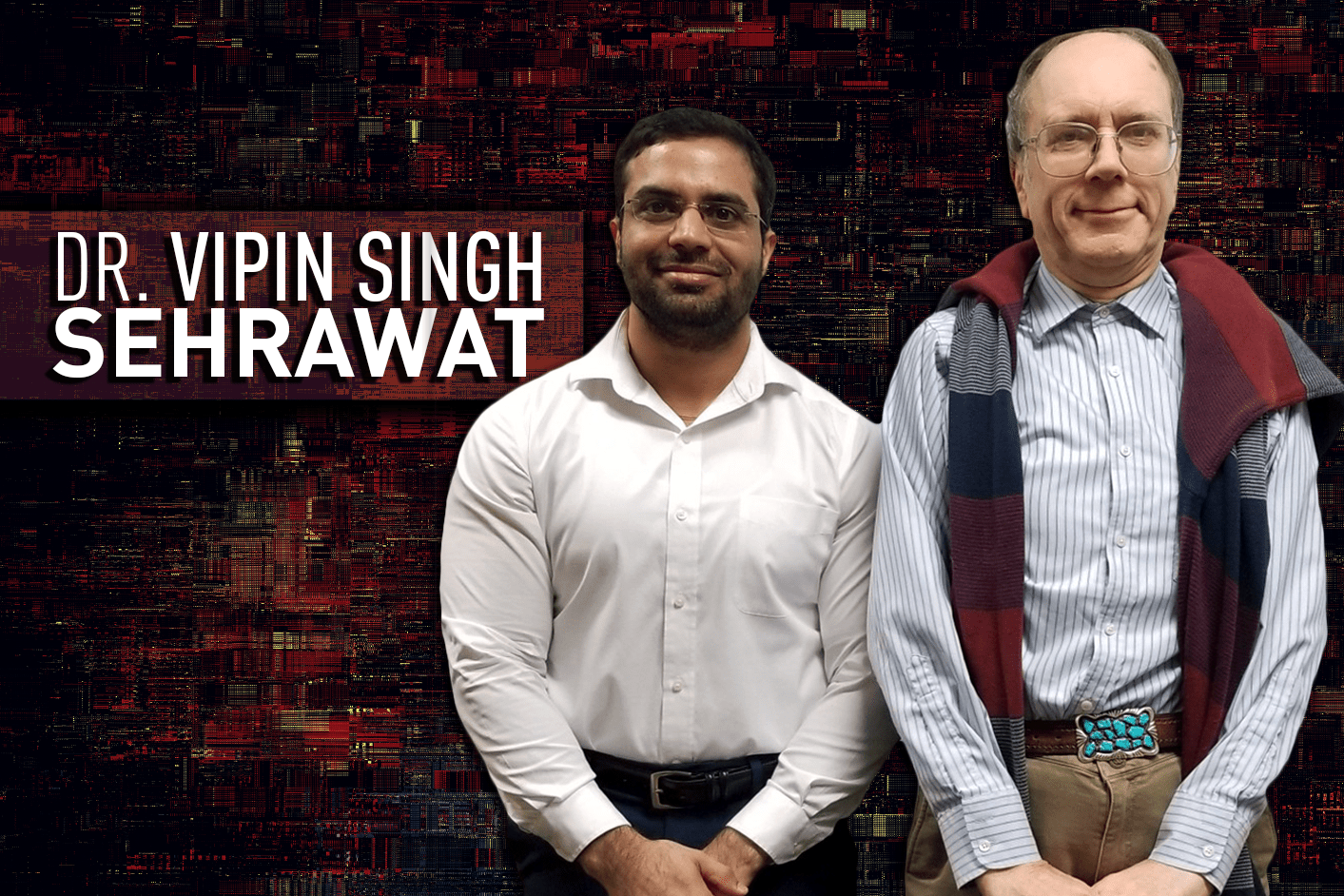Q&A With Fall 2019 PhD Graduate Dr. Vipin Singh Sehrawat

Dr. Vipin Singh Sehrawat obtained his doctoral degree in computer science from the UT Dallas Computer Science Department this past fall while researching cryptography under the supervision of Dr. Yvo Desmedt. Dr. Sehrawat will be joining Seagate as a Lead Staff Engineer for Cryptography and Product Security this December.
Dr. Sehrawat completed his Bachelor of Technology (B-Tech) in 2010 from Guru Jambheshwar University of Science and Technology, India. After graduating, he joined Om Institute of Technology and Management (now Om Sterling Global University) and started teaching B-Tech students. One of the courses that he taught was titled “Network Security and Cryptography.” Teaching cryptography further nourished his interest in the field, finally leading him to pursue higher education in cryptography and cybersecurity. In Fall 2011, he joined the Master of Science (MS) in Computer Science program (Information Assurance track) at UT Dallas. Studying cryptography in detail solidified his interest in the field and led him to pursue PhD in Computer Science also from UT Dallas. Under the supervision of Dr. Yvo Desmedt, Vipin worked on a variety of cryptographic problems during his PhD years. Two stretches of working as a Wireless Security Research Intern exposed him to the cryptographic problems faced by the industry.
We spoke with Dr. Sehrawat to learn more about him, his research, his time at UT Dallas, and his plans for the future.
What is your primary area of research? I understand that you graduated with a PhD in Computer Science and worked with Dr. Yvo Desmedt on cryptography.
Correct, my primary area of research is cryptography, but I am also interested in malware defense. During my PhD years, I worked on a wide range of cryptographic problems, ranging from conventional cryptography to information-theoretic cryptography, and from applied cryptography to post-quantum cryptography. In addition, I briefly worked on malware defense, as well.
What made you decide to pursue a PhD?
Since I was introduced to it, I have been fascinated by the magic of cryptography. My first encounter with the subject happened during my undergrad years, which was followed by my teaching an introductory course on the topic during my first job. While pursuing an MS from UT Dallas, I took Prof. Murat Kantarcioglu’s course titled “Introduction to Cryptography,” which touched topics like primality testing and elliptic curve cryptography. Then in Fall 2012, I took Prof. Yvo Desmedt’s course “Information-Theoretic Cryptography,” which introduced fundamental concepts like secret sharing and multiparty computation in detail. These courses inspired me to pursue a PhD in cryptography.
Why did you choose to pursue your PhD at UT Dallas?
The primary reason is that I wanted to do my PhD under the supervision of Prof. Yvo Desmedt. Also, since I completed my MS from UT Dallas, I was familiar with the research facilities here and the excellent support that the computer science department provides to its students.
Describe your experience studying at UT Dallas.
It was an amazing journey! I learned a lot and made awesome friends, all while growing as a scientist every day.
Do you have any advice to future students who wish to obtain a PhD at the UT Dallas Computer Science Department?
I believe that the most important decisions for a PhD student are choosing his/her supervisor and dissertation topic. Therefore, it is vital to communicate with the faculty and really understand their research. I would also like to highlight the crucial role of good writing skills in a good PhD. The culmination of every research project is a text, and strong writing skills are pivotal to composing a quality text.
During your time studying at UT Dallas, in what other projects did you take part?
Cryptography and research consumed most of my time during my PhD. Since I came from a non-mathematical background, learning and inventing cryptographic tools required me to go over the necessary mathematics first, leaving me with virtually no free time.
I have seen on your website that you have had papers published in numerous publications. Of which published papers are you most proud and why?
From my published work, I am particularly happy about the paper titled “Bi-Homomorphic Lattice-Based PRFs and Unidirectional Updatable Encryption”. The reason is that achieving unidirectional updates for quantum-safe (aka post-quantum), updatable encryption has been a highly desired but elusive goal for a long time.
What are your plans for the future? Where have you interviewed, and where will you be employed?
Fortunately, I have received multiple offers for exciting roles with challenging projects. After giving it some thought, I have decided to join Seagate as a Lead Staff Engineer – Cryptography and Product Security.
Please explain your dissertation in layman’s terms.
Basically, it involves enhancing privacy for the people who use cloud services, and for those who wish to communicate with others while ensuring that only the desired parties can know the correct information. Privacy in these settings has either been neglected or unaddressed. Hopefully, my work can motivate more research into these fields.
ABOUT THE UT DALLAS COMPUTER SCIENCE DEPARTMENT
The UT Dallas Computer Science program is one of the largest Computer Science departments in the United States with over 3,315 bachelors-degree students, more than 1,110 master’s students, 165 Ph.D. students, 52 tenure-track faculty members, and 44 full-time senior lecturers, as of Fall 2019. With The University of Texas at Dallas’ unique history of starting as a graduate institution first, the CS Department is built on a legacy of valuing innovative research and providing advanced training for software engineers and computer scientists.




